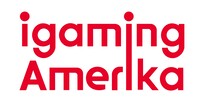iGaming Alberta Act Moves to Committee Stage for Key Discussions

The legislative process surrounding the iGaming Alberta Act, also known as Bill 48, is set to intensify as it has successfully passed its second reading. Minister Dale Nally presented the bill, which aims to create a legal structure for regulated commercial online gambling in Alberta. While the bill was not debated during this session, it has moved forward in the legislative process.
The next phase will involve a detailed examination of the bill by the Committee of the Whole, which includes all Members of the Legislative Assembly (MLA). During this committee stage, Bill 48 will be scrutinized clause by clause, allowing for potential amendments and discussion of its components. Following this, the bill will proceed to a third reading and additional debate before it can be approved.
Currently, the discussion surrounding the iGaming Alberta Act has been limited. There was just one hour of debate last week in the Assembly, where politicians delivered pre-written remarks. Essentially, Bill 48 is designed to pave the way for Alberta to create a regulated online gaming market akin to Ontario’s. This would permit a set number of private gaming operators to obtain licenses and compete with the provincially operated Play Alberta platform.
The proposed legislation calls for the establishment of the iGaming Alberta Corporation, which would function similarly to iGaming Ontario (iGO). However, the Alberta Gaming, Liquor and Cannabis Commission (AGLC) will oversee the regulation of this new iGaming market, implying that it will both regulate operations and maintain its Play Alberta service.
To operate within this regulated environment, online casinos and sportsbooks will need to register with the AGLC and enter into agreements with the new iGaming Alberta Corporation, adhering to established rules and standards. Additionally, the bill introduces a centralized self-exclusion system allowing gamblers to prohibit themselves from all licensed online gaming sites. Unlike Ontario, which lacks such a system, Alberta’s approach aims to bolster player protections.
Nally emphasized the need for this regulatory environment by highlighting concerns over Albertans being vulnerable to unregulated grey-market sites. He stated, “A significant number of Albertans are potentially being preyed upon by grey-market sites or illicit sites. This legislation proposes to change that … Our goal is not to create new gamblers but to make existing online gambling safer.”
However, many details about the bill remain unclear. Presently, Bill 48 does not outline specific tax rates or licensing fees, nor does it provide comprehensive guidelines regarding what will be permitted within this new market. The bill stipulates that operators must gain government approval and a license to function, but further specifics on market functionality and player protections are lacking.
Read also: Pennsylvania Breaks Gambling Revenue Records Amid Shifts in Sports Betting
Although the Alberta iGaming Corporation will be required to allocate its “surplus” funds to the province, the exact amount remains uncertain. Nally and other members of the United Conservative Party (UCP) have suggested that critical regulations concerning revenue, consumer protection, and social responsibilities will be clarified later this year, after consultations with indigenous groups and industry stakeholders.
In contrast, the New Democratic Party (NDP) has criticized the UCP for the lack of specificity, with one member likening the situation to “just like buying a car without knowing if it has brakes or a steering wheel.” These are the matters that lawmakers will work to clarify in the upcoming Committee of the Whole sessions, a process that may take some time to resolve.














